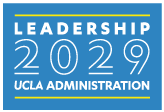Management Topic: Holding Effective & Efficient Meetings
Dear Colleagues,
Many departments have continued forward on a fully remote or hybrid work arrangement. These arrangements have resulted in an increase in scheduled meetings. To ensure all parties’ time is respected, that meetings run efficiently, and that employee well-being is at the forefront, this month’s topic will provide recommendations on best practices.
Meeting Scheduling Suggestions
Many of us have experienced the challenges of a work day full of meetings, some of which do not result in productive outcomes. Many meetings are requested and set by management, so it is important that you’re cognizant of this issue when scheduling meetings. We recommend the following:
- Do your best to schedule meetings that do not take place when most attendees take their lunch.
- Allow for start-up and wrap-up time at the beginning and end of each work day by avoiding scheduling meetings before 9:00 a.m. or after 4:00 p.m. whenever possible.
- Shorten meetings and begin them at consistent times to allow for a brief break to fulfill any physical needs (e.g. stretching your legs, giving your eyes a moment to rest, grabbing a snack or drink, etc.), provide staff transition time to gather any work materials needed for the next meeting, or arrange any new technology needs.
- A helpful guideline is to shorten meetings slightly as follows:
- If a meeting is longer than one hour, start the meeting 10 minutes after the hour or half hour.
- If a meeting is shorter than one hour, start the meeting at 5 minutes after the hour or half hour.
- A helpful guideline is to shorten meetings slightly as follows:
- Schedule shorter meetings by having a focused agenda. Because it is sometimes challenging to get schedules aligned, meeting agendas tend to get filled with too many items to take advantage of people’s attendance. If an agenda is created with a particular outcome in mind and only the people who are accountable are invited, it is easier to facilitate a meeting in a shorter timeframe.
- When scheduling meetings, be mindful that not all team members have the same “chronotype” and therefore have different times each day they are most productive. Someone’s chronotype is “the genetically influenced category you fall into due to your natural sleep habits and energy levels…” You can find out which chronotype you are and how best to plan your day accordingly by reading this article.
- Practice good meeting etiquette:
- Define the meeting’s purpose. Consider whether this meeting truly needs to be a Zoom/in-person meeting or if a brief phone call would suffice. Examples of when meetings are the most efficient and appropriate way to address a situation include when the purpose is to: make decisions, create a forum for discussion, build and/or strengthen a team, or convey complex information. Meetings may not be the best format for information-sharing if sharing simple information or for initial information gathering that could best be accomplished via e-mail.
- Ensure all key decision-makers needed to achieve your meeting objective are invited and available to attend.
- Prepare a meeting agenda that is distributed prior to the meeting start time and clearly communicates the meeting’s desired outcomes.
- Have someone take notes during the meeting. If this meeting will be reoccurring, consider rotating this task amongst attendees.
- Be mindful of the stop time of your meeting. Leave sufficient time to fulfill the following steps:
- Assign action items with clear deadlines.
- Before the meeting concludes, ensure agreement on next steps and understanding of who is responsible for what.
- If a follow up meeting is needed, try to schedule this meeting before the present meeting’s conclusion.
There will always be time-sensitive matters or sudden emergencies that may not permit us to abide by these recommendations; however, do your best to keep these tips at top of mind.
Meetings are important to an organization’s communication pipeline. Taking the time to plan them properly can lead to productive and meaningful outcomes for an organization – increased awareness, clarified roles and responsibilities, aligned goals and objectives, and attainment of desired results. Managing meetings productively is a skill that many of us need to develop but the good news is the more we practice this skill, the better we will become in implementing it effectively and efficiently.
Helpful Websites and Articles to Learn More About This Topic
- 6 tips to make work meetings more productive and valuable (article)
- 12 tips on how to lead effective meetings (article)
- 6 types of meetings you need (and 3 you don't) (article)
- The Only 3 Reasons to Hold a Business Meeting (article)
- The Three Reasons to Hold a Meeting (article)
- How to Run a Meeting (article)
Recommendations for how to address May’s Scenario can be found here.
Interested in reviewing prior months’ topics? Visit our Monthly Management Tips website.
Stay Safe!

Do you have feedback, questions or a suggested topic you would like to learn more about? Please email: managementtips@ucla.edu.
Want to receive Monthly Management Tips emails? Sign up for our list!

